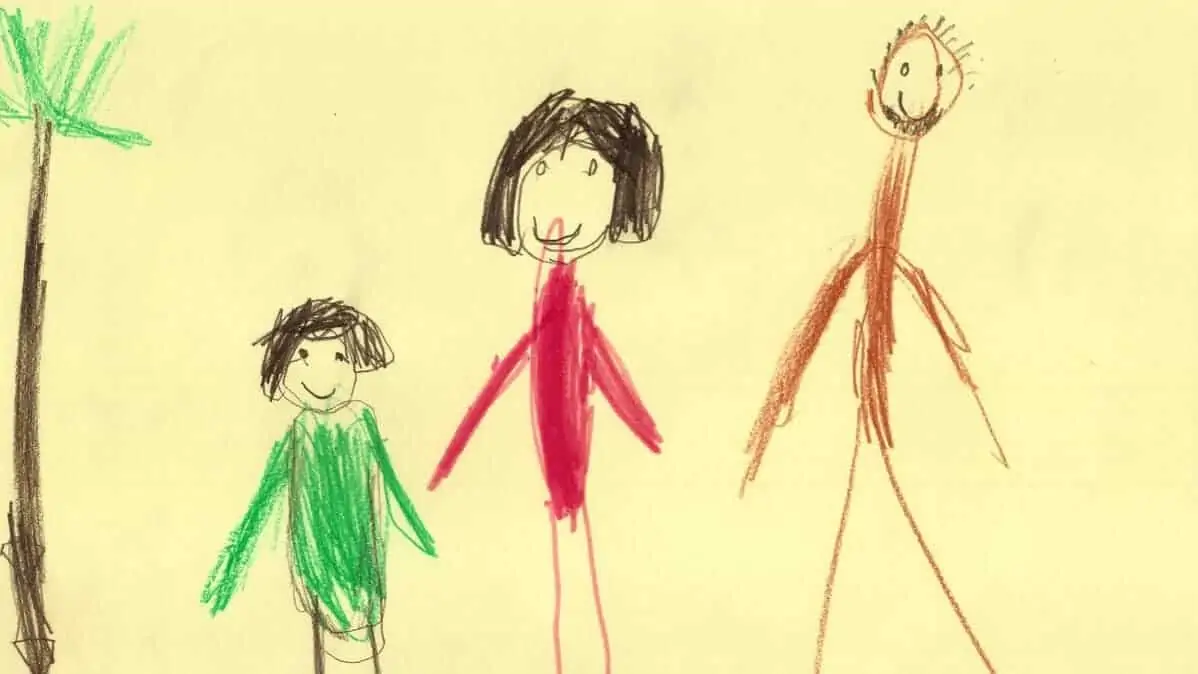Today's Sunday • 9 mins read
Jean Piaget’s cognitive development theory tells us that children learn and grow through four different stages of mental development.
But first, what is a cognitive theory?
Cognitive theories are scientific ideas that explain the mind as an interplay between our impression of external realities and the mental processes we run on them.
There are three important cognitive theories:
- Cognitive Developmental Theory by Piaget
- Social Cultural Cognitive Theory by Vygotsky
- Information Processing Theory, inspired by the works of George Armitage Miller, John William Atkinson, and Richard Shiffrin.
Now, let’s delve into Piaget’s theory of cognitive development.

Jean Piaget And His Cognitive Development Theory
Jean Piaget was a Swiss developmental psychologist. He began his career as a biologist studying mollusks and sparrows. But, by the time he died in 1980, he was already one of the most significant psychologists of the twentieth century.
Piaget’s first interests were animals and he published his first scientific paper on albino sparrows in 1907, when he was barely 11 years old.
In 1920, he began working with standardized intelligence tests. He realized the younger children continuously and unfailingly made certain types of mistakes that the older children did not.
He concluded they must think differently, and decided to spend the rest of his life studying the intellectual development of children. In fact, Piaget was one of the first scientists to recognize that the way children think is quite different from the way adults do.
In 1936, he published his Theory of Intellectual or Cognitive Development which still finds use in studying education and psychology.
Piaget found children learn through an active process. Behaving a lot like little Einsteins, they stage experiments, make observations, and then learn new things about the world from their results. In fact, Albert Einstein called Piaget’s discovery something “so simple only a genius could have thought of it.“
His idea was that little children were different both in their manner and method of thinking than that of older children and adults. He proposed we acquire and develop our intelligence through a series of stages.
Piaget’s assumptions about children were:
- Children build their knowledge based on their personal experiences.
- They can learn things on their own without any contribution or motivation from adults or older children.
- Children are naturally motivated to learn and do not need any rewards to spur them to learn new things.
Piaget believed children go through four stages of cognitive development in order to be able to understand the world.
What Are The 4 stages of Piaget’s Cognitive Development?
Piaget’s cognitive development stages depict intellectual growth in children from birth to young adulthood.
Jean Piaget’s theory argues we have to conquer the following four stages of cognitive development before we start making a sense of our world:
- First, the sensorimotor stage.
- Second, the pre-operational stage.
- Third, the concrete operational stage.
- Fourth, the formal operational stage.
| Stage | Age Range | Cognitive Goal | |
| 1 | Sensori-motor stage | 0 to 2 years | Objective permanence |
| 2 | Pre-operational stage | 2 to 7 years | Symbolic thought |
| 3 | Concrete operational stage | 7 to 11 years | Operational thought |
| 4 | Formal operational stage | 12 years to adult | Abstract concepts |
Only once we have gone through all four stages, we are able to reach the full range of human intelligence.
Stage 1: Sensori-Motor Stage (0 – 2 Years)
In the sensori-motor stage, from birth to two years, we develop our mind through experiences and movements across our five senses. Our brain wants to see, hear, smell, taste, and touch as much as possible.
First, we start with simple reflexes, and soon after, we develop our first habits. From four months old, we become aware of things beyond our own bodies. Then, as we get older, we learn to do things intentionally.
A key milestone during this stage is the development of working memory or in Piaget’s terms — ‘our realization of object permanence‘.
Before that, our mom could show us a Teddy bear and then hide it, and we would think is gone. After acquiring object permanence, we understand that objects keep on existing even when we can see them no more.
We start becoming curious about everything. We want to smell flowers, taste food, listen to sounds, and talk to strangers.
To explore more, we move, we learn to sit, crawl, stand, walk, and even run. This increased physical mobility consequently leads to increased cognitive development.
But we remain egocentric — meaning we can perceive the world only from our own point of view.
Stage 2: Pre-Operational Stage (2 – 7 Years)
Our thinking is mainly categorized for symbolic functions and intuitive thoughts when we are between two and seven years of age.
We have lots of fantasies and believe objects are alive, as we are not able to apply specific cognitive operations.
Piaget calls this stage ‘pre-operational’. In this, we learn to speak and understand that words, images, and gestures are symbols for something else.
When we draw our family, we are not concerned about drawing each person to scale, but rather with their symbolic meanings.

We love to play pretend, which allows us to experience something new and learn a lot.
At around age 4, most of us become very curious and ask many questions. We want to know everything. We can call it the birth of primitive reasoning. Piaget calls it ‘the intuitive age‘ because while we realize we have a vast amount of knowledge, we have no idea how we acquired it.
Nonetheless, our thinking during this stage is still largely egocentric. We think others see the world as we do, and still don’t understand that they see it differently.
Stage 3: Concrete Operational Stage (7 – 11 Years)
In the next stage, between seven to eleven years of age, we finally discover logic and start making concrete cognitive operations, such as sorting objects in a certain order.
One example of this is inductive reasoning, which means if we see someone eating a cookie we can draw a conclusion and then make a generalization as “People eat cookies.”
We understand if we pour orange juice from a normal glass into a taller one, the amount will stay the same. Our younger sister will pick the taller glass thinking she gets more.
We now get the concept of conservation.
By the same logic, we only now can understand that if 3 plus 5 equals 8, then 8 minus 3 must equal 5.
Our brain learns to rearrange our thoughts to classify and build concrete operational mental structures. For example, we now know that we can reverse an action by doing the opposite.
Excited by our new mental abilities, we apply them in conversations and activities, when we learn to write, and in school. As a result, we get to know ourselves better.
We begin to understand that our thoughts and feelings are unique and not necessarily those of others. That means that we learn to empathize — put ourselves in someone else’s shoes.
Stage 4: Formal Operational Stage (12+ Years)
According to Piaget, once we cross our twelfth-year milestone and become teenagers, we become formally operational.
We now have the ability to think more rationally about abstract concepts and hypothetical events. Our advanced cognitive abilities allow us to understand abstract concepts such as success and failure, and love and hate.
We form a deeper understanding of our own identity and our morality.
We now also think that we understand why people behave the way they behave and as a result can become more compassionate.
Our brain can now do deductive reasoning, which means we can compare two statements and reach a logical generalization. Our new mental skills allow us to plan our life systematically and prioritize and we can make assumptions about events that have no necessary relation to reality.
We can now also philosophize and just think about thinking itself.
Our new sense of our identity now also creates egocentric thoughts and some of us start to see an imaginary audience watching us all the time.
Piaget believed in lifelong learning, but insisted the formal operational stage is the final stage of our cognitive development.
Summary of Piaget’s Theory of Cognitive Development
Here are 6 key points summarizing Piaget’s Theory of Cognitive Development:
- Piaget believed that babies are born with a brain that is ready to learn. He proposed that children’s brains develop in stages, and each stage helps them understand the world in a new way.
- The first stage is called the sensorimotor stage from 0 to 2 years, where babies explore the world around them using their senses, such as touching, tasting, and smelling. As they get older, they learn to solve problems.
- The preoperational stage from 2 to 7 years is when children start to use language to communicate and understand things. They also start to use their imagination and play make-believe.
- In the concrete operational stage from 7 to 11 years, children start to understand how objects can be grouped or sorted in different ways. They also start to understand basic maths like addition and subtraction. But they still have trouble thinking of abstract ideas or hypothetical situations.
- The formal operational stage from 12 years to adulthood is when children start to think more like adults and can solve complex problems and understand hypothetical situations. They can also think about different points of view and understand that people can have different opinions.
- Piaget’s theory helps parents and teachers help us understand how children learn and grow, and create activities and lessons for each stage. Piaget gives us a helpful framework to understand and support a child’s learning.
Final Words
To close this, the best words would have been from the man himself:
Each time one prematurely teaches a child something he could have discovered himself, that child is kept from inventing it and consequently from understanding it completely.
If you want to be creative, stay in part a child, with the creativity and invention that characterizes children before they are deformed by adult society.
— Jean Piaget
• • •
10 Signs of Repressed Childhood Trauma In Adulthood
• • •
Author Bio: Written and reviewed by Sandip Roy — a medical doctor, psychology writer, and happiness researcher, who writes on mental well-being, happiness, positive psychology, and philosophy (especially Stoicism).
√ If you liked it, please spread the word.
» You deserve happiness! Choosing therapy could be your best decision.
...
• Disclosure: Buying via our links earns us a small commission.
